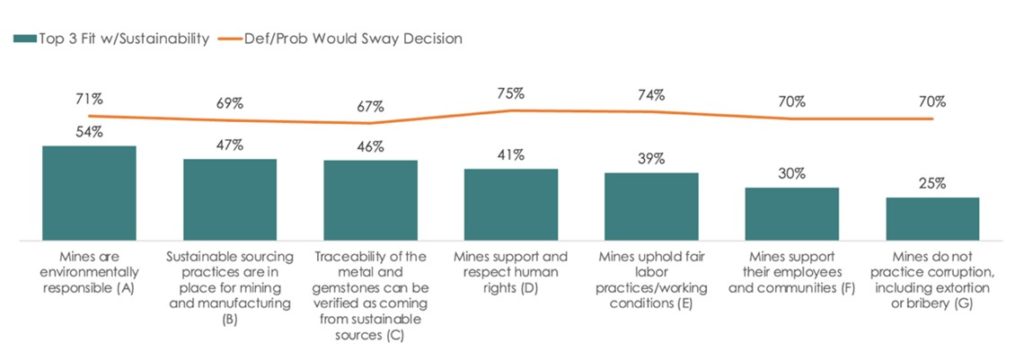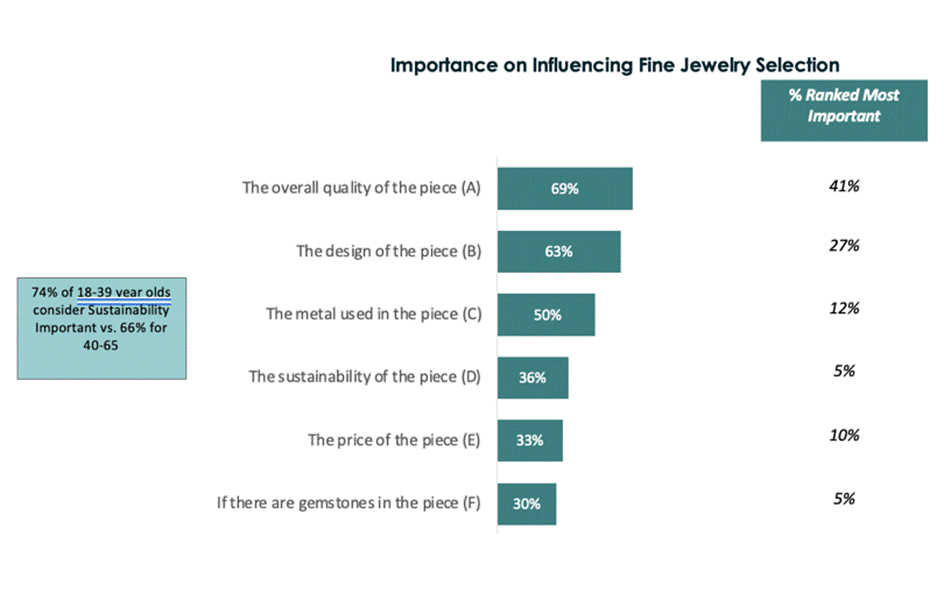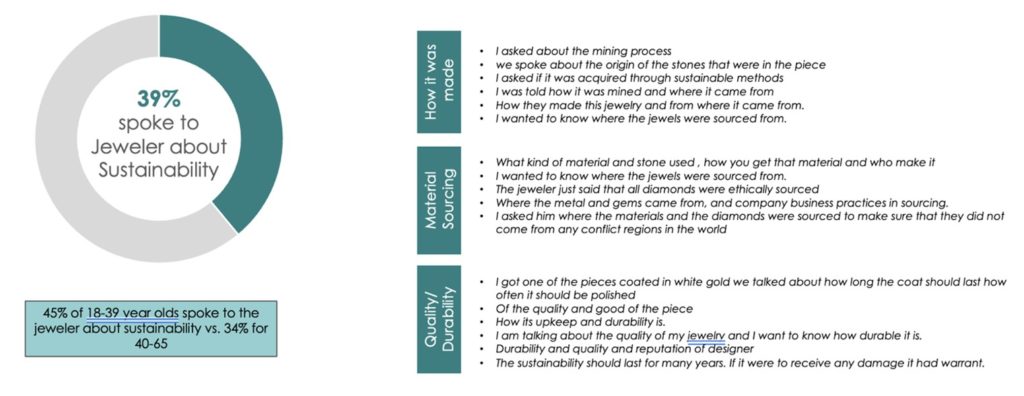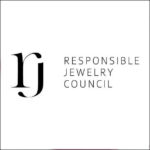What ESG Factors are Most Important to Fine Jewelry Consumers?

A NEW PGI-SPONSORED STUDY ANSWERS THE QUESTIONS & PROVIDES 4 KEY TAKEAWAYS
As an organization representing platinum producers committed to abiding by ethical, social, and environmental standards, PGI USA recognizes the importance of incorporating ESG into business practices. In an effort to gain a deeper understanding of the fine jewelry consumer mindset when it comes to ESG, the trade organization behind the world’s most precious metal commissioned a study on the topic as it relates to fine jewelry purchasing. The goal of this research was to determine which ESG factors are most important to the fine jewelry consumer and to explore the impact of these factors.
The research yielded four key findings:
Consumers’ Understanding of Definition of Sustainability Varies
Buzz words such as environmentally responsible, sustainable sourcing and traceability fit best when consumers think of sustainability. However, human rights and fair labor practices are most likely to sway their purchase decision.

Takeaway #1: There is no one-size-fits-all when it comes to what ‘sustainability’ means to consumers. This means while retailers need to be mindful about using the terminology and knowledgeable about the origins and production of the jewelry they carry, they also need to understand what aspects are important to individual consumers.
Sustainability is Ranked Fourth Among Important Factors Influencing Consumers’ Fine Jewelry Selection
Although sustainability is important to a good proportion of fine jewelry consumers, it is not nearly as influential on their selection as quality, design and metal used. While many consumers cite that sustainability is about jewelry being produced responsibly, environmentally friendly practices and fair labor laws, some also cite that it relates to the durability and quality of the piece, showcasing an unclear definition and understanding of the word among consumers.

Takeaway #2: As the definition of sustainability varies between consumers, sales associates need to be prepared to both ask and answer questions to ensure customers get the informative they need to make an informed purchase.
Young Consumers Lead the Conversations with Jeweler about Sustainability
About two in five respondents had conversations with their jeweler about sustainability. These discussions are largely driven by those 18-39, and topics focus on how the piece was made, where the materials were sourced and the quality/durability of the piece.
Takeaway #3: Be a respected, accessible source of information. Encourage sales associates to have conversations with their customers, both in person as well as digitally, through email or even via text and DM. Allowing for an open dialogue will create not only a stronger relationship with the consumer, but a greater understanding of what is important to them.
Consumers are Willing to Pay More for Sustainability Aspects
Although consumers’ understanding of the definition of sustainability varies, most consumers state that they would pay an average of 15-20% more for all sustainable aspects, particularly environmentally responsible, human rights and fair labor practices.
Takeaway #4: There is a strong ROI for investing time and energy to both educate sales associates about sustainability, as well as encouraging them to have those types of conversations with their customers. Research shows consumers are already willing to pay the premium for sustainably-minded jewelry and this will only increase in coming years.
“We feel it is important for our industry to make a continued commitment toward sustainable practices in all levels of business”, shared PGI USA president, Jenny Luker. “In order to be highly effective in this space and provide value to our partners and the industry at large, we felt it was necessary to conduct a study that would show the baseline of what sustainability actually means to consumers, allowing our future communications to be more effectively received.”









